Beaten, humiliated and abused: what is it like to be transgender in Russia?
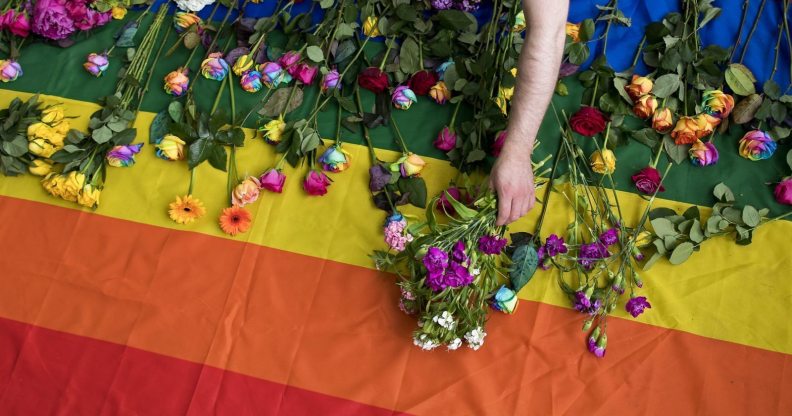
Demonstrators outside the Russian embassy (Getty Images)
A transgender activist living in Russia has given her account of what it means to be trans in the country.
Russia has one of the fiercest anti-LGBT agendas across the world, with no legal protections being provided for the LGBTQ community regarding anti-discrimination.
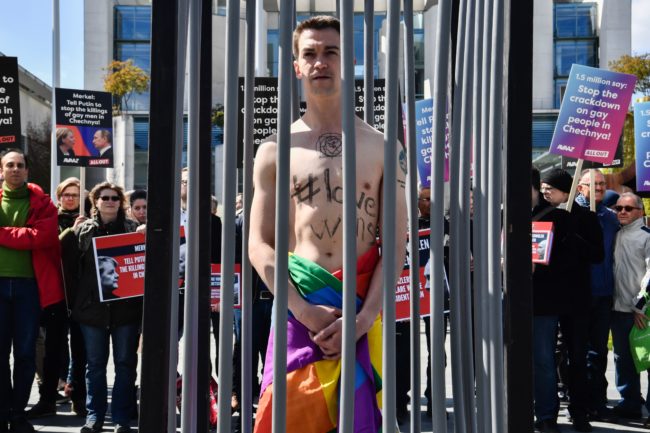
(Getty)
Federal law bans the distribution of ‘homosexual propaganda’ and in some regions, LGBTQ people face severe persecution to the point of death, as seen in Chechnya.
Maya Demidova, a transgender woman living in Moscow has recounted to Attitude her experience of being trans in the country.
The 28-year-old began her transition ten years ago, but it hasn’t been easy.
Demidova’s mother, father and grandmother all died before she came out as transgender, but her grandfather was still alive.
At the time, she was living with him, but he had a violent reaction to her coming out and he beat, humiliated, abused and insulted her until she was forced to leave the home.
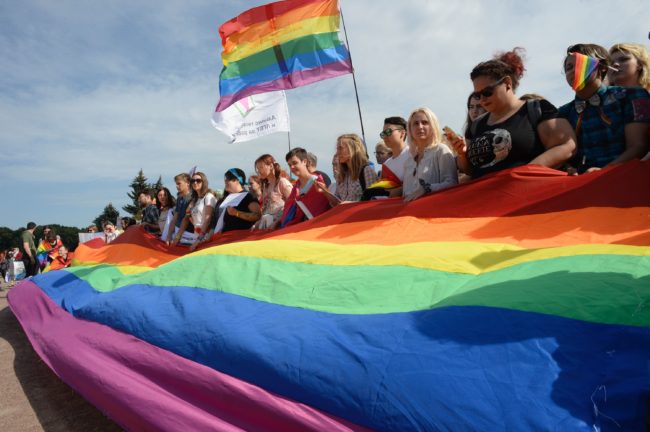
(Getty)
“He started drinking alcohol hard. He hit me and bit me a few times. He forced me to leave my home and kicked me out onto the street,” she explained.
Their relationship was completely deteriorated for years, and Demidova tried to kill herself as her depression spiralled.
Related: A transgender man has been arrested for ordering testosterone in Russia
In recent years, the pair have been repairing their relationship and now, while he does not understand what being transgender is, he does call Demidova by her name and accepts her female identity.
Discrimination came from outside of her family too, as all of her friends deserted her and strangers on the street began to harass and attack her.
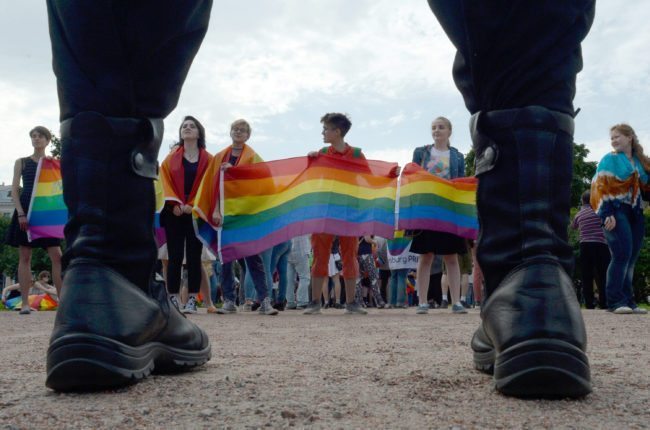
St. Petersburg Pride
(Photo by OLGA MALTSEVA/AFP/Getty Images)
“The first time was on the street, three big guys came over and hit me on the head and knocked me to the floor, where they kicked me to the head,” she explained.
However, another time she was attacked she said that onlookers were on her side. She was riding the subway when a man approached her and asked if she was male or female.
She retorted that she could “be a boy” if he wanted her too, and he kicked her in the face. She kicked back and “he ended up worse”.
“The people around us were on my side. Everything fell out of my bag and people helped me pick it all up. They separated us and I became emotional and started crying. Three women started to calm me down,” Demidova added.
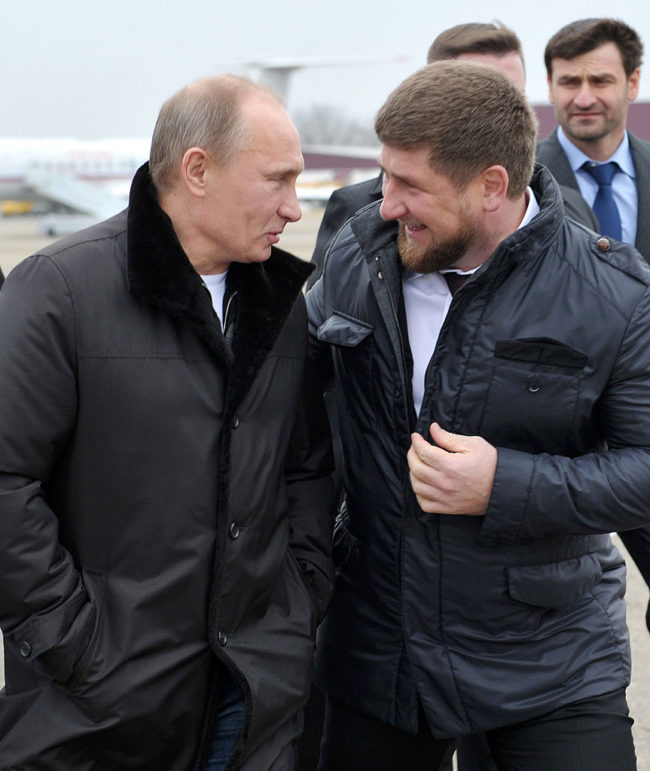
Russia’s Prime Minister Vladimir Putin and Chechnya leader Ramzan Kadyrov
Related: Russia files charges against first gay couple to have their marriage recognised
One of the most violent encounters for Demidova occurred just two months ago after she was spiked, beaten and violently raped by a man she had met in a club. Now, she fears that she has caught HIV from the man and is in the process of getting a test.
However, she cannot turn to the police to see justice as she says they would “laugh in her face”.
“The police hate people like me,” she said. “They think if I’ve been raped it’s my fault.”
As well as facing violent discrimination, Demidova cannot access many of the necessities including hormones and surgery, despite it being legal for trans people to change their legal gender since 1997.

She administers her own hormone replacement therapy (HRT) without a prescription, and although she is keen to have surgery she fears that seeking it out in the country would be disastrous because of the “low quality”.
Demidova explained: “There are a few specialized clinics that offer vaginoplasties at a low price to help trans people but in my personal opinion the level of surgery offered is quite low.
Related: This Russian government official gave a chilling response to Chechnya’s gay purge
“I know a few trans women who’ve had vaginoplasties in Moscow but they can’t lead full sex lives because the quality of surgery is so poor. The depth of the vagina is so small that there’s almost nothing there.”
The activist, who works at one of the only HIV organisations specifically for LGBTQ+ people in the country, says that the country is “cruel” and “if you want to survive you have to be really tough”.
Demidova says that the climate is getting “worse and worse” for the LGBTQ community, so much so that her one hope is that she is not killed in the next four years when the next elections are due to be held.
She said: “Chechnya is only the beginning and if Putin stays in the Kremlin I think it’ll spread all around the country”.
However, she doesn’t want to leave Russia because she feels she should see the fight for equality through to the end.
“I want to fight to the very end with everything I have in me. I want to help all those who stay here,” she added.

